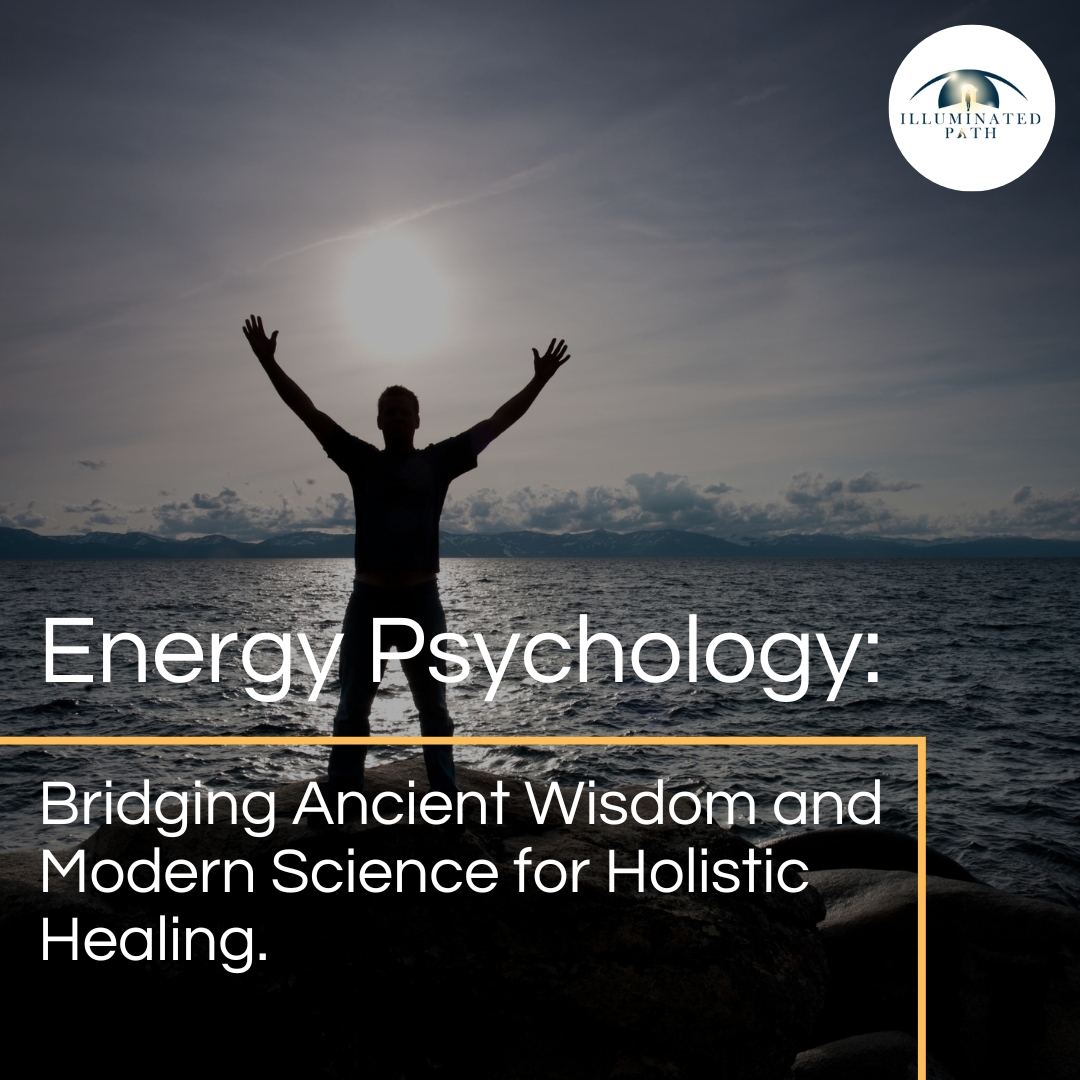
The Rising Demand for Alternative Mental Health Solutions
Mental health disorders affect over 970 million people globally, according to the World Health Organization (2022), with anxiety and depression alone costing the global economy an estimated $1 trillion annually in lost productivity. Despite the widespread use of traditional therapies like cognitive behavioral therapy (CBT) and pharmaceuticals, up to 50% of patients experience limited relief or relapse, as noted by the American Psychological Association (2021).
This gap in effective treatment has spurred growing interest in integrative approaches, including energy psychology (EP)—a practice that merges cognitive techniques with interventions targeting the body’s subtle energy systems. Offering accessible and non-invasive tools for emotional well-being, EP has gained significant traction in recent years. By 2023, a National Institutes of Health (NIH) survey found that 1 in 5 Americans had tried energy-based therapies like Emotional Freedom Techniques (EFT) for mental wellness.
This article delves into the principles, scientific evidence, applications, and debates surrounding energy psychology, offering a comprehensive exploration of its role in modern mental health care.
What Is Energy Psychology?
Energy psychology is rooted in the idea that disruptions in the body’s biofields—subtle energy systems such as meridians (from Traditional Chinese Medicine) or chakras (from Ayurvedic traditions)—correlate with psychological and physical ailments.
By modulating these energy systems, practitioners aim to alleviate emotional distress and promote healing. Modern EP techniques include Emotional Freedom Techniques (EFT), which involves tapping on acupuncture points while focusing on negative emotions; Thought Field Therapy (TFT), which uses algorithm-based tapping sequences to neutralize trauma; and HeartMath, a practice that regulates heart rhythms to improve emotional coherence.
At its core, energy psychology operates on three principles:
- Energy Systems Influence Mental Health: The body’s energy pathways are seen as conduits for emotional and physical well-being.
- Mind-Body Connection: Psychological trauma is believed to manifest as blockages or imbalances in these energy systems.
- Rapid Intervention: EP often claims to achieve faster results than traditional talk therapies, with some techniques requiring just minutes to reduce acute stress.
Scientific Evidence: What Does the Data Say?
The efficacy of energy psychology has been a subject of both enthusiasm and skepticism. Clinical studies, however, are increasingly validating its potential. For example, a 2022 meta-analysis published in the Journal of Nervous and Mental Disease reviewed 56 studies on EFT and found that the technique reduced anxiety symptoms by 40–60% within 4–10 sessions—a result comparable to CBT. Similarly, a randomized trial in the Energy Psychology Journal (2021) demonstrated that EFT decreased depression scores by 39%, compared to a 17% reduction in control groups.
Neurological research has also begun to uncover mechanisms behind EP’s effects. Functional MRI studies reveal that EFT significantly reduces hyperactivity in the amygdala, the brain’s fear center, by approximately 25% post-treatment (Frontiers in Psychology, 2021). HeartMath techniques, which focus on heart rhythm coherence, have been shown to increase heart rate variability (HRV)—a biomarker of emotional resilience—by 20–30% (American Journal of Cardiology).
Critics, however, argue that EP’s benefits may stem from placebo effects, general relaxation, the therapeutic alliance, or the power of focused attention, rather than energy modulation alone. A 2022 review in Skeptical Inquirer emphasized the need for more rigorous, long-term studies, as most research tracks outcomes for less than a year.
Applications in Modern Mental Health
Energy psychology’s versatility has led to its adoption in diverse settings. In trauma recovery, for instance, veterans with PTSD experienced a 58% reduction in symptoms after six EFT sessions, according to a 2023 study in the Journal of Military Medicine. The Association for Comprehensive Energy Psychology (ACEP) now trains clinicians in EP techniques specifically for trauma treatment.
In corporate wellness programs, companies like Google have integrated HeartMath into their “Search Inside Yourself” curriculum, reporting a 32% drop in employee stress levels. EP is also gaining traction in chronic illness care: a 2021 study in Cancer Care found that 41% of oncology patients using energy psychology reported improved coping skills during chemotherapy. Furthermore, many individuals are exploring EP techniques for self-help and personal growth, utilizing resources like books, online courses, and workshops.
Case Studies: Real-World Impact
The transformative potential of energy psychology is illustrated through individual stories. In one case, a 35-year-old woman with debilitating social anxiety stemming from childhood bullying used EFT for eight weeks, reducing her Liebowitz Anxiety Scale score from 84 to 42—a threshold indicating clinical remission. Another example involves a veteran with combat-related PTSD who participated in a VA Hospital study using Thought Field Therapy; after six sessions, he experienced a 70% decrease in flashbacks and hypervigilance.
Ethical Considerations and Training
As energy psychology grows in popularity, ethical concerns around practitioner training and evidence-based integration have emerged. Reputable organizations like ACEP require practitioners to complete 200+ hours of specialized training, ensuring adherence to clinical standards. Notably, 14% of U.S. mental health clinics now combine EP with CBT, according to a 2023 Psychology Today report, reflecting its gradual acceptance into mainstream care.
Criticisms and the Path Forward
Skeptics often dismiss energy psychology as pseudoscience, citing its reliance on concepts like “biofields,” which lack empirical measurement. However, institutions like the American Psychological Association have begun recognizing EFT as an “emerging treatment” for trauma, signaling a shift toward openness. Future research must address gaps in long-term efficacy data and standardize protocols to strengthen EP’s credibility.
A New Frontier in Integrative Care
Energy psychology represents a compelling fusion of ancient wisdom and modern neuroscience, offering accessible, low-cost tools for mental health. With growing evidence of its efficacy and 68% of users reporting satisfaction in NIH surveys, its potential to complement traditional therapies is undeniable. By addressing the interconnectedness of mind, body, and emotions, EP offers a holistic approach to healing and well-being. As research evolves, energy psychology may play a pivotal role in addressing the global mental health crisis, bridging the gap between mind, body, and spirit in ways that resonate with our understanding of well-being.

The Author
Dr. Shadi Souferian Psy. D.
Licensed Clinical Psychologist
Therapist And Psychologist in Los Angeles And Beverly Hills.
